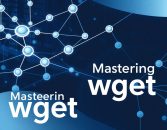
The Digital Frontier of Data Extraction
Imagine standing at the intersection of technology, law, and ethics, where every digital request represents a delicate negotiation between access and respect. Web scraping isn‘t just a technical process—it‘s a sophisticated dance of understanding digital boundaries, technological capabilities, and ethical considerations.
Origins of Web Scraping: A Historical Perspective
Web scraping emerged from the fundamental human desire to understand and organize information. In the early days of the internet, developers discovered that websites contained treasure troves of unstructured data waiting to be transformed into meaningful insights. What began as rudimentary screen-scraping techniques has evolved into a complex ecosystem of advanced data extraction methodologies.
Technical Foundations of Modern Web Scraping
Understanding web scraping requires diving deep into its technological infrastructure. Modern web scraping isn‘t about simple data collection—it‘s about creating intelligent systems that can navigate increasingly complex digital environments.
Infrastructure Complexity
Contemporary websites represent intricate technological landscapes. JavaScript-driven frameworks like React and Angular generate dynamic content that traditional scraping methods struggle to capture. This means developers must deploy sophisticated techniques that go beyond simple HTML parsing.
Consider a typical scenario: You‘re attempting to extract product information from an e-commerce platform. The challenge isn‘t just retrieving data—it‘s understanding how that data is generated, rendered, and protected. Modern websites implement multiple layers of protection designed to prevent automated extraction.
Advanced Extraction Techniques
Successful web scraping requires a multi-layered approach:
Intelligent Request Management: Understanding how to structure network requests that mimic human browsing behavior.
Dynamic Content Rendering: Using headless browsers like Puppeteer to execute JavaScript and capture fully rendered page content.
Adaptive Parsing Algorithms: Developing flexible extraction methods that can handle variations in page structure.
Technological Challenges
Web scraping professionals face an ongoing technological arms race. As websites implement more sophisticated anti-scraping mechanisms, extraction techniques must continuously evolve.
Imagine a financial data aggregation project where real-time stock information must be extracted from multiple sources. Each website presents unique challenges—different DOM structures, dynamic loading mechanisms, and protection algorithms. Success requires a combination of technical skill, strategic thinking, and adaptive technologies.
Legal and Ethical Considerations
The legal landscape of web scraping remains complex and nuanced. While data exists in the public domain, accessing and utilizing that data isn‘t always straightforward.
Navigating Legal Boundaries
Recent legal precedents, like the HiQ vs. LinkedIn case, have begun establishing frameworks for understanding data access rights. However, these frameworks remain fluid and context-dependent.
Key legal considerations include:
- Terms of Service compliance
- Copyright implications
- Personal data protection regulations
- Jurisdictional variations in data access laws
Ethical Data Collection Principles
Responsible web scraping transcends legal compliance—it‘s about maintaining ethical standards that respect digital ecosystems and individual privacy.
Ethical practitioners consider:
- Minimizing server load
- Obtaining explicit permissions
- Protecting individual privacy
- Transparent data usage intentions
- Providing opt-out mechanisms
Advanced Scraping Strategies
Proxy Management and IP Rotation
Sophisticated web scraping requires intelligent proxy management. By rotating IP addresses and implementing realistic request patterns, professionals can extract data while maintaining a low profile.
Effective proxy strategies involve:
- Residential proxy networks
- Geographically diverse IP pools
- Intelligent request timing
- Adaptive anonymization techniques
Machine Learning Integration
Emerging AI technologies are transforming web scraping from a manual process to an intelligent, adaptive system. Machine learning algorithms can now:
- Automatically identify content selectors
- Predict and adapt to website changes
- Optimize extraction efficiency
- Reduce manual intervention requirements
Real-World Implementation Challenges
Case Study: Academic Research Data Collection
Consider a university research project requiring large-scale data extraction. The team must navigate:
- Institutional review board approvals
- Website owner permissions
- Data anonymization requirements
- Ethical data handling protocols
This scenario demonstrates that successful web scraping isn‘t just about technological capability—it‘s about creating a comprehensive, responsible approach to data collection.
Future Trends and Innovations
The web scraping landscape continues to evolve rapidly. Emerging trends include:
- Enhanced AI-powered extraction tools
- Blockchain-based data verification
- More sophisticated privacy protection mechanisms
- Automated compliance checking systems
Technological Predictions
Experts anticipate significant developments in:
- Natural language processing for content extraction
- Adaptive scraping algorithms
- Enhanced anonymization techniques
- Cross-platform data integration capabilities
Conclusion: The Responsible Data Extraction Paradigm
Web scraping represents more than a technical process—it‘s a nuanced approach to understanding digital information. Success requires a holistic strategy balancing technological innovation, legal compliance, and ethical considerations.
By embracing responsible practices, organizations can transform web scraping from a potentially controversial technique into a powerful tool for research, innovation, and strategic insights.
Key Takeaways
- Understand the complex technological landscape
- Prioritize ethical data collection
- Stay informed about evolving technologies
- Implement robust, respectful scraping practices
The future of web scraping belongs to those who can navigate technical challenges while maintaining unwavering ethical standards.






